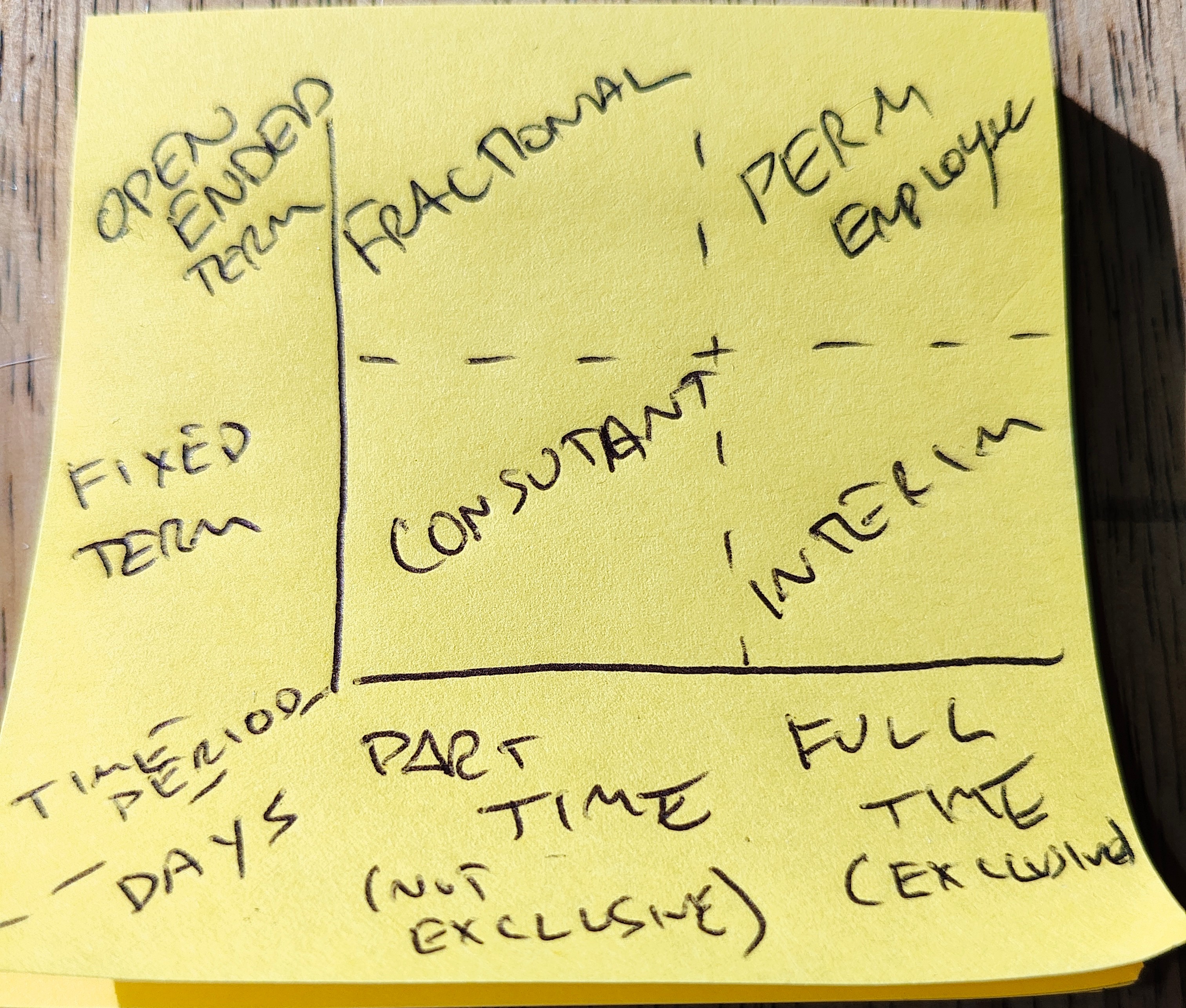Fractional? Part-Time? Unemployed?
I was asked on a call last month… “Are you really fractional? Or are you just out of work?” [1]
That question has been written on a post-it on my kitchen table ever since, waiting.
 Are you really fractional?
Are you really fractional?
Yes, of course I’m fractional.
I’m also interim. I’m also a consultant. And a contractor. It’s important to recognise that after fifteen years of working in independent capacity, at a leadership level, that the words aren’t mutually exclusive. The question is whether the needs of the client match the engagement type, need and term.
 Another post-it to try and simplify the conversation
Another post-it to try and simplify the conversation
At the risk of restating the obvious, if the engagement structure isn’t right for the needs of the firm, you’ll end up with a failed project. Either outcomes aren’t realised, or they’re realised at a massive cost-overrun – both bad for both the client and the provider.
The 100 Year Life
Lynda Gratton and Andrew Scott have it right – there is a need to shift to accommodate longevity at the macro level. This means more of us moving to look like fractional / part-time / self-employed / continuing education.
The 100-Year Life is a 2016 self-help book by Lynda Gratton, professor of management practice at London Business School, and Andrew Scott, professor of economics at the same institution. - Wikipedia
What they’re missing
The microeconomics of the individual – we might be fractional in the delivery of services to clients, but we’re full-time on our business. You can’t be fractional without putting in full-time effort to keep the pipeline full. Otherwise, you’re unemployed in the medium term.
Cost of time of sales – the friction involved in getting the next fractional or independent engagement sometimes makes it completely impractical to even attempt. Unless the large corporate is undertaking the effort to add fractional / interim capacity to their bench, it’s not worth approaching. Better to leave them to overpay for cookie-cutter consultancy and focus effort where specialist services are welcomed / engaged.
Entrepreneurship is a great lifestyle choice for better work-life balance – this is 100% wrong. Anyone who thinks you get better work-life balance being entrepreneurial is going to get smacked in the face with a hard truth.
The safety net doesn’t exist, unless you have it built in – if you have an unplanned impact on your ability to do business (burnout? family loss? health issue? lettuce-based macro-economic mismanagement catastrophe?), you’re in trouble.
Intangible Assets are first in the firing line – if you’re not able to feel confident about the lowest level of Maslow (food, shelter) because of macro forces (cost of housing, energy crisis), and barely confident on short-term safety/security, you’re going to sacrifice all of the love, belonging, self-esteem and self-actualisation in the pursuit of basics. Your intangible assets are going out the window – you’re going to withdraw from your social / peer groups and focus on feeding the family.
Broadly, there needs to be a rebalancing
[1] Intentionally taken out of context – we were discussing challenges faced by modern fractional leaders.